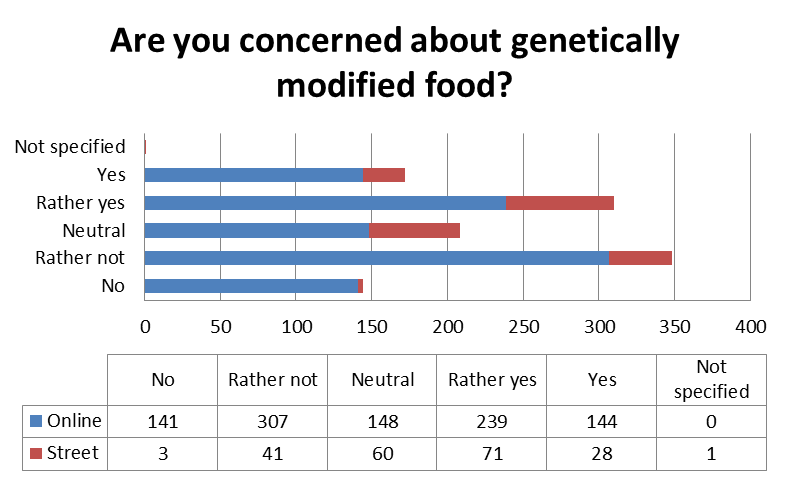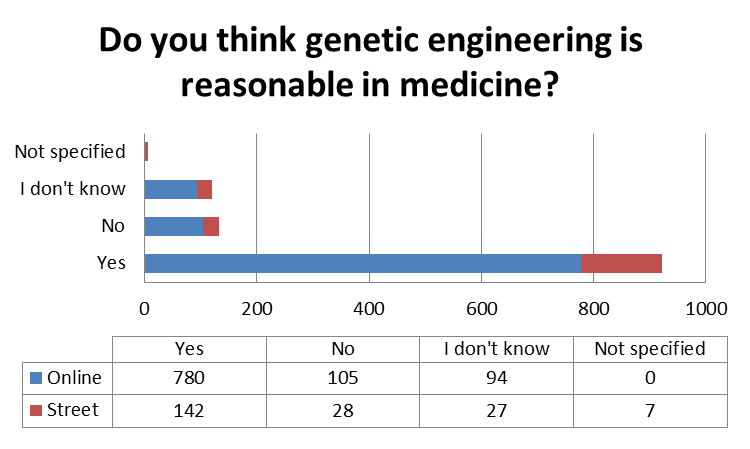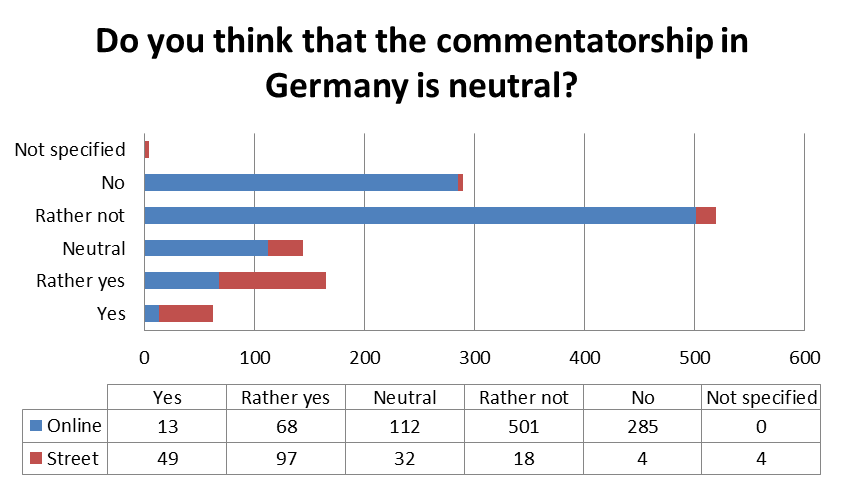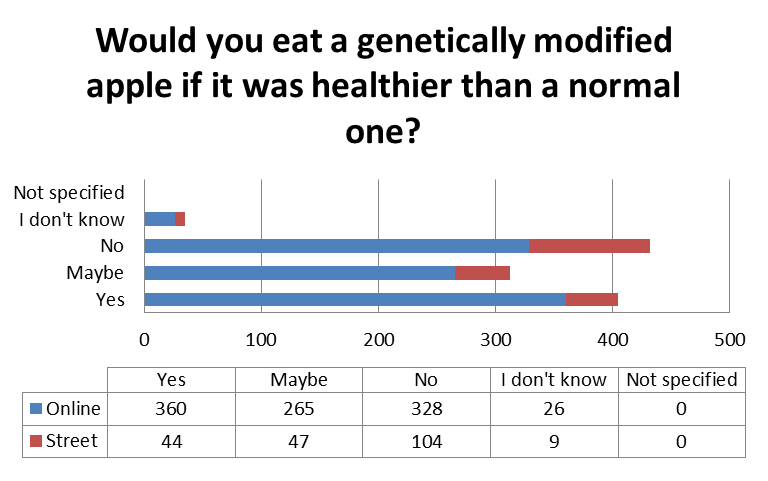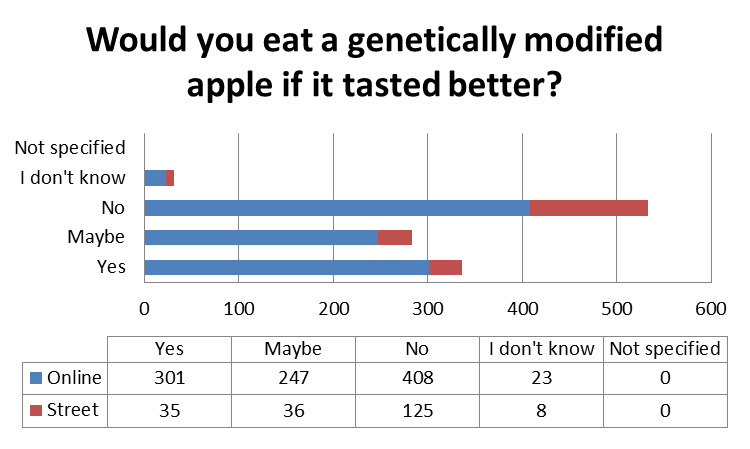Team:TU Munich/Human Practice/Survey
From 2012.igem.org



Contents |
Survey
Background
The survey was carried out by the [http://portal.mytum.de/jungeakademie/index_html/document_view? TUM young academy], who planned to install a website to inform the public about genetic engineering. They made an online questionnaire and stood in Munich for one day, with a print out version.
All in all 1183 people participated, 979 online and 204 at the street, thereof 597 were male and 570 female. The problem is that in this survey the age from 15-24 is with 70% drastically over represented, the reason could be that through the university project more students were reached.
This team allowed us to use their data for our project as well. As they had 33 questions we chose the ones directly relied to genetic engineering, the ones dealing with the webpage they wanted to create we left out.
Basic data
- People participating 1183
- Online participants 979
- "Street participants 204
- Male 597
- Female 570
- Age: mainly between 15-24 with 70%
Questions
Evaluated questions
- How do you feel about genetic engineering?
- How much do you know about genetic engineering?
- Are you concerned about genetically modified food?
- Do you think genetic engineering is appropriate in medicine?
- Do you think genetic engineering is appropriate in farming?
- Do you think genetic engineering is appropriate in food?
- Do you think the commentatorship in Germany is neutral?
- Would you eat a genetically modified apple if it would be healthier?
- Would you eat a genetically modified apple if it would tastes better?
Answers
Conclusion
The overall impression about genetically modified organism is not that bad, but it has to be differenced where genetic engineering is used. A lot of people agree that it is appropriate to use it in medicine (922).
Whereas in food and agriculture the acceptance is with 633(food) and 573(farming) people who say no, very low.As also mentioned on our overview pagepeople do not accept GMO in their food. The skepsis in Germany is rather big.
This is also depicted in the fact that people (533) will rather not eat a genetically modified apple even if it would taste the same. Eating a healthier apple is not that controversial but not many Germans would (404). So with around 50% of people who would not eat an healthier apple, when it is healthier because of genetic engineering, the problem lies in the acceptance. Even a positive result is not enough to convince people.
Nevertheless it is to be mentioned that a lot of people think that they are not informed impartial. This might lead to a rather negatic point of view, because a neutral reporting is essential to come up with his or her own mind.
All in all it is to say that the red biotechnology is widely accepted in Germany, whereas green biotechnology has a hard stand. Although it is to say that the Germans think that the media is not neutral about GMO, 808 think so. Also they have the wish that plays a bigger role in politics (655).
 "
"


